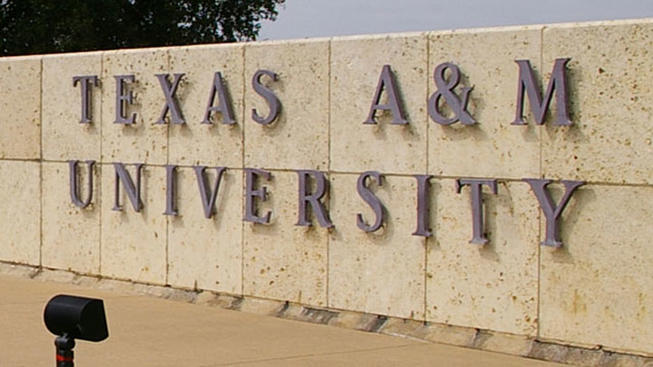Many major “American” corporations are actually owned by communist China
12/29/2020 / By Ethan Huff

Domestic namesakes like General Electric and General Motors have long been seen as icons of American industry. As it turns out, though, these and many other corporate giants are owned, at least in part, by communist China.
GM, America’s largest automobile manufacturer, is partially owned by the Shanghai Automotive Industry Corp. – and has been since 1998. The two companies work in partnership to keep the American brand alive and kicking.
A similar situation is true of GE, though this “Made in America” giant is completely owned by the Chinese company Haier, which purchased it for $5.4 billion in 2016. GE’s products are still made in the United States, but all company decisions are made in China.
The following “American” companies also have partnerships, ties or ownership in China:
AMC
Though based out of Leawood, Kan., AMC’s majority stakeholder is the Dalian Wanda Group, which pours enough money into the theater chain every year to keep it afloat.
Smithfield Foods
Despite originating in Smithfield, Va., Smithfield Foods was purchased by the China-based W.H. Group in 2013 for $4.72 billion. At the time, this was the most expensive acquisition made by a Chinese company in America.
The Waldorf-Astoria Hotel
Located in McLean, Va., this Hilton Worldwide hotel was purchased by the Anbang Insurance Group in 2014 for $1.95 billion. China also has its sights on Starwood Resorts, another American hospitality group.
IBM: Personal Computer Division
In 2005, IBM’s Personal Computer Division was acquired by Lenovo for $1.25 billion. Lenovo, a Chinese corporation, also poured additional money into IBM.
Spotify
Tencent Holdings Ltd. purchased a 10 percent stake in Spotify in 2017, while Spotify purchased the same stake in Tencent. This allowed Spotify to enter the Chinese market when it otherwise would have been unable to do so alone.
Tesla
While Elon Musk typically gets exclusive credit for being the brains and money behind Tesla, the company actually has a glut of different shareholders, including Tencent.
Snapchat
For $2 billion, Tencent was able to purchase a 10 percent stake in Snapchat. With its newfound influence, Tencent was then able to expand the augmented reality technology used in the platform.
Microsoft
Most people think of Bill Gates when they think of Microsoft, but when it comes to the company’s mobile phone division, China-based FIH Mobile Ltd. is now in control.
Hilton Hotels
Chinese aviation and shipping titan HNA Group purchased a 25 percent stake in this well-known hotel chain for $6.5 billion back in 2016. That same year, HNA also purchased Carlson Hotels Inc.
WeWork
This shared workspace giant entered into a partnership with Legend Holdings Corp. in 2016 to access some much-needed capital. WeWork, which pushes feminizing soy products on its employees, probably would have gone under were it not for Legend.
Sotheby’s
Taikang Life, based out of China, became Sotheby’s newest majority shareholder in 2016. The London-based company was then bought out by French-Israeli titan Patrick Drahi in 2019.
Uber
This popular ride-sharing platform received a $600 million cash infusion from Chinese internet search titan Baidu Inc. in 2014. Uber was then able to gain easier entry into the Chinese market.
Motorola
In 2012, Google purchased Motorola Mobility, a split off company from Motorola, for $12.5 billion. Three years later, Google sold Motorola Mobility to Lenovo for just $2.91 billion, a loss of around $10 billion.
Cleveland Cavaliers
In 2019, the Cavaliers signed a deal with Jianhua Huang, a Chinese businessman, allowing him to own a 15 percent stake in the company.
Brookstone
After filing for Chapter 11 bankruptcy in 2014, Brookstone was purchased by Sailing Capital and Sanpower, two Chinese entities, for $173 million. This allowed Brookstone to come out of bankruptcy in 2014 as a new Chinese-owned entity.
For more related news about the Chinese takeover of American companies, visit Tyranny.news.
Sources for this article include:
Submit a correction >>
Tagged Under:
AMC, Brookstone, China, Cleveland Cavaliers, communist China, GE, General Electric, General Motors, GM, Hilton, IBM, Motorola, Smithfield, SnapChat, Sotheby's, spotify, tesla, Uber, Waldorf-Astoria, WeWork
This article may contain statements that reflect the opinion of the author
RECENT NEWS & ARTICLES
COPYRIGHT © 2020 CommunistChina.News
All content posted on this site is protected under Free Speech. CommunistChina.News is not responsible for content written by contributing authors. The information on this site is provided for educational and entertainment purposes only. It is not intended as a substitute for professional advice of any kind. CommunistChina.News assumes no responsibility for the use or misuse of this material. All trademarks, registered trademarks and service marks mentioned on this site are the property of their respective owners.




















